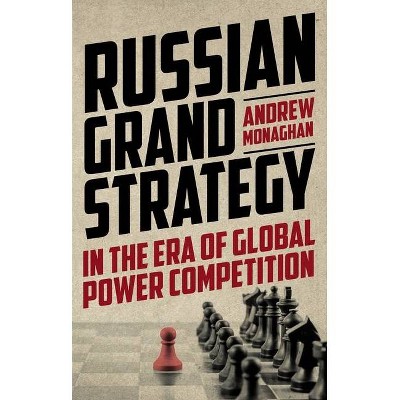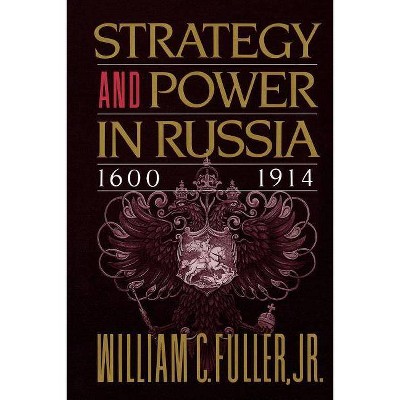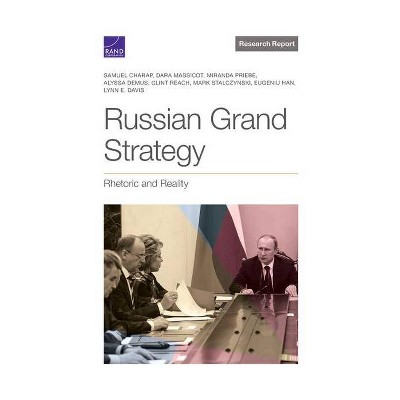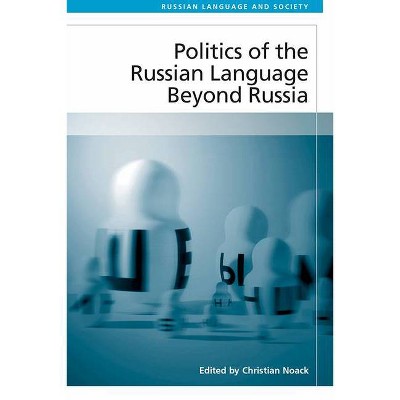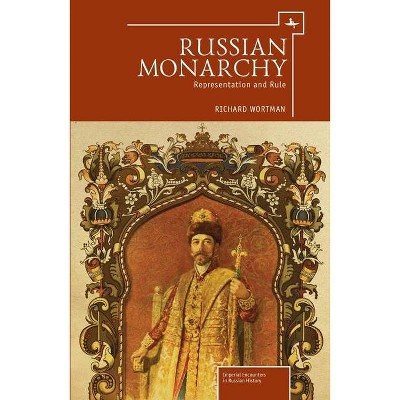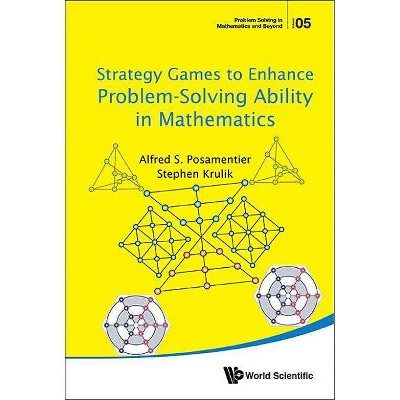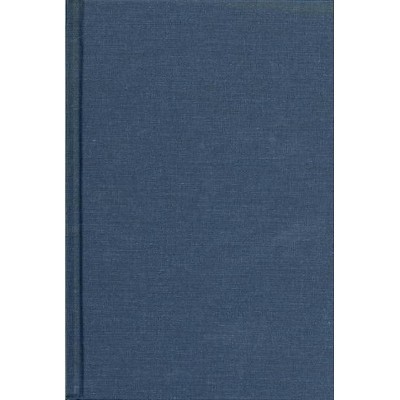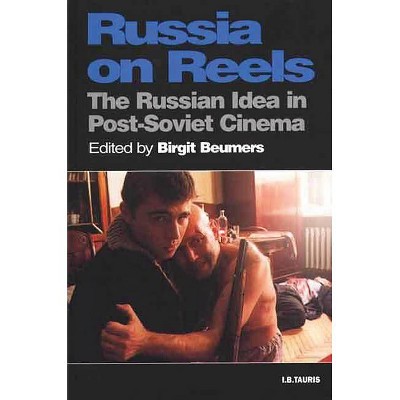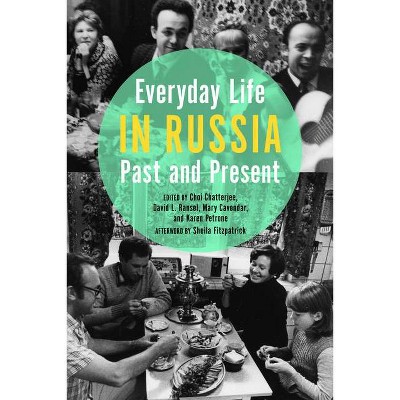Germany's Russia Problem - (Russian Strategy and Power) by John Lough (Hardcover)
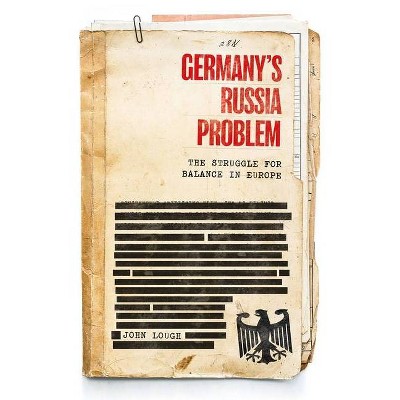
Similar Products
Products of same category from the store
AllProduct info
<p/><br></br><p><b> About the Book </b></p></br></br>The relationship between Germany and Russia is Europe's most important link with the largest country on the continent. This book analyses how successive German governments from 1991 to 2014 have misread Russian intentions, until Angela Merkel sharply recalibrated German and EU policy towards Moscow.<p/><br></br><p><b> Book Synopsis </b></p></br></br>The relationship between Germany and Russia is Europe's most important link with the largest country on the continent. But despite Germany's unparalleled knowledge and historical experience, its policymakers struggle to accept that Moscow's efforts to rebalance Europe at the cost of the cohesion of the EU and NATO are an attack on Germany's core interests. This book explains the scale of the challenge facing Germany in managing relations with a changing Russia. It analyses how successive German governments from 1991 to 2014 misread Russian intentions, until Angela Merkel sharply recalibrated German and EU policy towards Moscow. The book also examines what lies behind efforts to revise Merkel's bold policy shift, including attitudes inherited from the GDR and the role of Russian influence channels in Germany.<p/><br></br><p><b> From the Back Cover </b></p></br></br>'With courage, honesty and insight, John Lough navigates one of the most sensitive areas of global politics today and sees a crucial role for Germany in creating a transformative environment around Russia that can facilitate its return to Europe.' <b>Lilia Shevtsova, author of <i>Putin's Russia</i></b> 'With admirable clarity, fairness and insight, Lough lays bare the roots and results of Germany's failure to think strategically about Russia, and the price that everyone else pays as a result.' <b>Edward Lucas, author of <i>The New Cold War</i></b> 'John Lough's book is nuanced, astute and fair. That makes his account of how hope keeps triumphing over experience in Germany's Russia policy all the more devastating.'<b> Constanze Stelzenmüller, Fritz Stern Chair, Brookings Institution</b> Germany has the most developed relationship with Russia of any EU country, spanning business, education, politics, culture and sport. But Germany has a Russia problem: its policymakers struggle to accept that Moscow's efforts to rebalance Europe are an attack on Germany's interests. Any conflict with Russia is deeply discomforting, and arouses emotions that impede clear thinking and consistent action. In this bold and original analysis, John Lough explains the scale of the challenge facing Germany as it strives to design policies for managing its relations with a changing Russia. Beginning with an account of how the countries' attitudes to each other were formed over several centuries, he proceeds to explore how German governments from 1991 to 2014 misread Russian intentions and inadvertently supported the emergence of a Russian system hostile to German interests, until Angela Merkel sharply recalibrated German and EU policy. The book looks at the role of German business interests and Germany's vulnerability to Russian interference, including misinformation and cyber attacks. It concludes by considering how Germany can strengthen its position against Russian influence in the future.<p/><br></br><p><b> Review Quotes </b></p></br></br><br>'I have found John Lough's <i>Germany's Russia Problem</i> an ideal book as we contemplate the source of energy we will draw on for heat and light in the decades ahead.' TLS 'The title of John Lough's book itself makes clear that this is not another academic sand box exercise. He wants to make things better.' Die Welt 'John Lough has written a stimulating book rich in knowledge.' Frankfurter Allgemeine 'Suffused with nostalgia for the glory days of <i>Ostpolitik, </i>Germany's approach to Russia bogs down in what might more aptly be called <i>Lost-politik</i>. Cliches, wishful thinking and neuroses are its hallmarks. John Lough nails them all. With admirable clarity, fairness and insight, he lays bare the roots and results of Germany's failure to think strategically about Russia, and the price that everyone else pays as a result.' Edward Lucas, author of <i>The New Cold War</i> 'Provocative and brilliantly written, this book examines the deep relationship between two mutually indispensable nations and explains how Russia triggers reflexes in Germany that distort its policy thinking and produce contradictory results. With courage, honesty and insight, John Lough navigates one of the most sensitive areas of global politics today and sees a crucial role for Germany in creating a transformative environment around Russia that can facilitate its return to Europe.' Lilia Shevtsova, author of <i>Putin's Russia</i> 'John Lough's book is nuanced, astute and fair. That makes his account of how hope keeps triumphing over experience in Germany's Russia policy all the more devastating.' Constanze Stelzenmüller, Fritz Stern Chair, Brookings Institution<br><p/><br></br><p><b> About the Author </b></p></br></br>John Lough is an Associate Fellow of the Russia & Eurasia Programme at Chatham House (since 2009) and a regular commentator on Russian and Ukrainian affairs. He spent six years with NATO managing information programmes aimed at Central and Eastern Europe, including a posting to Moscow, where he set up NATO's Information Office in Russia and was the first Alliance official to be permanently based in the country. He runs his own consultancy business, advising clients on political and investment risk in Russia, Ukraine and other countries of the former Soviet Union. He studied German and Russian literature at Cambridge University.
Price History
Cheapest price in the interval: 29.49 on October 27, 2021
Most expensive price in the interval: 29.49 on December 20, 2021
Price Archive shows prices from various stores, lets you see history and find the cheapest. There is no actual sale on the website. For all support, inquiry and suggestion messagescommunication@pricearchive.us
